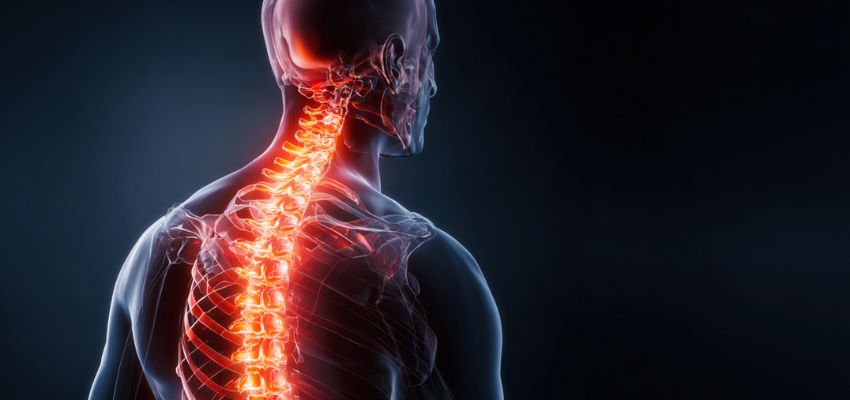Living with degenerative disc disease can make even simple tasks painful. You may wonder how hard it is to get disability for degenerative disc disease and whether the process is worth the effort.
Many people struggle with the paperwork, medical proof, and long wait times, leaving them frustrated and unsure where to start. In this guide, we’ll break down exactly what you need to know, show you how the system works, and give tips to improve your chances.
By the end, you’ll understand the challenges and the steps you can take to get the help you deserve.
Why Disability for Degenerative Disc Disease Can Be Tough
Getting disability for degenerative disc disease (DDD) is not easy. Many people wait too long to apply, hoping their pain will improve. By the time they ask for help, they may have lost critical medical records or proof of treatment.
The Social Security Administration (SSA) wants solid evidence showing your pain stops you from working. This includes doctor notes, MRIs, and proof that you follow treatment plans. Without it, your claim might be denied. The key is preparation and documentation.
Think of it as building a strong case step by step to show the real impact of your DDD.
Understanding SSA’s Rules and Listings
The SSA has strict rules for approving disability. Degenerative disc disease falls under a special spine disorder listing called 1.15. To meet it, you must show that your discs press on nerves and cause serious problems like numbness, weakness, or loss of mobility.
X-rays, MRIs, and detailed doctor reports are crucial. If your DDD doesn’t fully match the listing, you still might qualify using your work restrictions. SSA then looks at whether you can do any job, not just your old one.
Knowing these rules helps you give the right proof and avoid common mistakes that cause denials.

Medical Evidence That Counts
Doctors’ notes, imaging tests, and treatment records are your best weapons. SSA wants clear proof that DDD limits your daily activities. Pain descriptions alone are not enough.
| Type of Evidence | Why It Matters | Tips to Strengthen Your Claim |
| Doctor’s Notes | Shows diagnosis, pain severity, and limitations | Ask doctors to note weight limits, sitting/standing ability, and daily activity struggles |
| Imaging Tests (MRI, X-ray, CT) | Proves disc degeneration, nerve compression, or bone spurs | Include recent scans and compare with older ones to show progression |
| Treatment Records | Shows ongoing care and effort to manage condition | Keep physical therapy notes, medication records, and spine specialist visits |
| Daily Activity Logs | Demonstrates real-world impact of DDD | Record what tasks you struggle with, like lifting, walking, or bending |
| Functional Assessments | Quantifies strength, range of motion, and mobility | Ask therapists to measure limits and provide written reports |
Meeting Work Restriction Requirements
If your DDD doesn’t fully meet the listing, the SSA looks at your work capacity. They ask:
- Can you still do your old job?
- Can you do other simple jobs?
Your daily limits matter here. For instance, if you can’t stand for more than 10 minutes, lift anything over 15 pounds, or concentrate for long periods, these are restrictions SSA will consider. Age, education, and experience also play a role.
Showing all your limits clearly can turn a denied claim into an approved one. This is where medical evidence and honest self-reporting work together to prove your disability.
Long-Term and Insurance Disability Claims
It is not only about Social Security in terms of disability. Work or personal long-term disability (LTD) insurance is taken out by many. Claims on back problems, such as DDD, are usually denied by the insurance companies because you can work in sedentary jobs or because you are not that restricted.
In this case, documentation is essential. Detailed records of doctors, treatment plans, and notes on everyday restrictions combat denials. In cases, legal assistance is required to appeal against the claims rejected by insurers.
Being aware of your policy regulations and keeping a record of your condition will provide you with significantly better opportunities to receive benefits that you have a right to.

Veterans and Degenerative Disc Disease
Veterans with DDD face unique challenges. VA rates DDD under code 5242, however, secondary conditions such as herniated discs or radiculopathy may uprate you. In case your symptoms become more severe with time, you can be rated with a greater percentage of disability.
It is necessary to file with medical evidence and an understanding of VA regulations. Rejections or poor ratings are subject to appeal. Having an accredited veterans attorney on your side ensures that this claim is correct and comprehensive.
Many veterans manage to receive higher ratings, proving the impact of DDD on their lives and working abilities. Sustainability, bureaucracy, and expert mentoring are among the success factors.
FAQs
Will losing weight help degenerative disc disease?
Yes, losing weight can help reduce pressure on your spine. Extra body weight can increase stress on the discs and joints, which may worsen pain and stiffness. Shedding pounds can ease discomfort, improve mobility, and support treatments like physical therapy.
What is the progression of degenerative disc disease?
Degenerative disc disease usually starts with mild disc wear. Over time, discs may lose cushioning, shrink, or crack. This can lead to bone spurs, pinched nerves, and chronic pain. Symptoms often progress slowly, but some people experience sudden flare-ups.
What is L5 S1 degenerative disc disease?
L5 S1 refers to the disc between the last lumbar vertebra (L5) and the first sacral vertebra (S1). Degeneration here can cause lower back pain, numbness, tingling, or weakness in the legs. Because it’s at the base of the spine, this type of DDD often affects mobility and makes activities like standing, walking, or lifting more difficult.
Can a person work with degenerative disc disease?
It depends on the severity of the condition. Some people can continue working, especially in jobs with light or flexible physical demands. Others may struggle with standing, lifting, or sitting for long periods. Severe cases may prevent full-time work entirely.
Can I file for disability if I have degenerative disc disease?
Yes, you can file for disability if DDD significantly limits your ability to work. The Social Security Administration considers medical evidence, treatment history, and work restrictions. Meeting the official spine disorder listing or showing that you cannot perform any job may qualify you.
Final Thoughts
Getting disability for degenerative disc disease can be challenging, but it is possible. The key is showing that your back condition makes it hard or impossible to work. Medical records, doctor notes, and treatment history are very important.
Even if your claim is denied at first, you can appeal with the right evidence. You don’t have to do it alone, having experienced legal help makes a big difference. If you are struggling with degenerative disc disease and need guidance, Victor Malca P.A. can help.
Call (954) 474-0556 or email info@victormalcalaw.com for a FREE consultation today.
VICTOR MALCA – Florida Workers Compensation & Social Security Disability Attorney
Victor Malca P.A. has over 27 years of litigation experience in Workers Compensation and Social Security Disability lawsuits. His experience and continued success when fighting for his clients puts him among the most trusted workers’ compensation attorney’s in Florida. He specializes in representing injured workers on compensation benefit cases and disabled individuals claiming lost social security disability benefits.
Book a free consultation today. Our unwavering advocacy for employee rights and privileges are recognized by our past clients across South Florida.
About The Author
Meet writer Rei Bayucca, a graduate of Saint Louis University with a passion for writing about legal topics. Explore insightful articles tailored to solve your most pressing issues. Rei’s expertly crafted content is thoroughly researched and fact checked.
